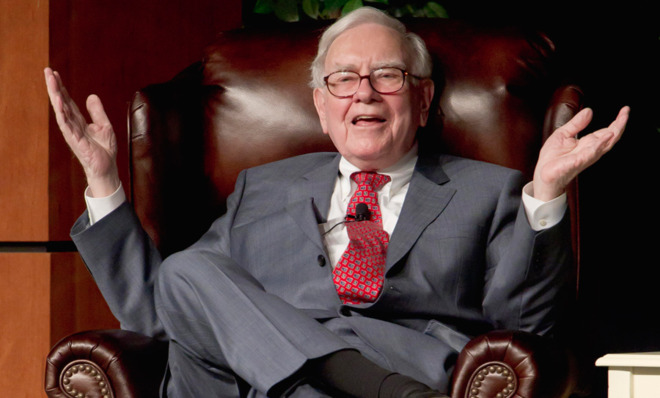What Warren Buffett would say about your stressful work environment
Most of us make decisions in an environment where it's almost impossible to behave rationally

A free daily email with the biggest news stories of the day – and the best features from TheWeek.com
You are now subscribed
Your newsletter sign-up was successful

Looking at the history of Warren Buffett and Charlie Munger, it's easy to wonder how they consistently make good decisions. While they are both smarter than average, I think a portion of their success comes from their environment.
Most of us make decisions in an environment where it is very hard for us to behave rationally. I'm hard pressed to imagine an environment less conducive to rational decisions than that of the modern office worker.
You arrive at work and immediately start to answer the critical emails from your swelling inbox, telling yourself you'll get to the low priority stuff later. The phone rings, it's your boss wanting to know if you have time to chat on the 15 page proposal he was supposed to read for the meeting in 30 minutes. Having not read the proposal yourself, and not wanting to say "I haven't read that," you glance at the executive summary and, like anyone who's learned to survive in an office, confidently act like you know what's going on. Your opinion is superficial at best. You know this but rationalize that everyone else put the same five minute effort into it that you did, so you carry on. Getting back to your desk, you find five missed calls. You call the first person back and immediately realize that you're late for your meeting and haven't read any of the preparation material.
The Week
Escape your echo chamber. Get the facts behind the news, plus analysis from multiple perspectives.

Sign up for The Week's Free Newsletters
From our morning news briefing to a weekly Good News Newsletter, get the best of The Week delivered directly to your inbox.
From our morning news briefing to a weekly Good News Newsletter, get the best of The Week delivered directly to your inbox.
This isn't an abnormal day. This is reality for a lot of people in large organizations.
From the moment you arrive to the moment you leave, you're pulled in all directions. The unwritten arrangement is that you have to do these things in order to justify your job. If you're not pushing paper, firing up hundreds of emails, calling and attending meetings, and chasing something down…just what the heck are you doing to justify your salary?
It's hard to make rational decisions in this environment.
Now picture Warren Buffett, sitting at his desk with his feet up reading. He has no computer in his office. He's not distracted every few minutes by that little annoying ding that signals a new email has arrived. His day isn't full of meetings — he estimates he spends 80 percent of his time reading and thinking.
A free daily email with the biggest news stories of the day – and the best features from TheWeek.com
He's not in New York, so he's not being fed some sexy idea that's going to make him gazillions of dollars while he's waiting in line for a Dilly bar. He knows that it's hard to say no to ideas by smart people. That's part of the problem: It's hard to think clearly. So, he moved to Omaha. New York might work for an artist or a writer, but it didn't work for him.
"In some places, it's easy to lose perspective. But I think it's very easy to keep perspective in a place like Omaha," Buffett says. "It's very easy to think clearly here. You're undisturbed by irrelevant factors and the noise generally of business investments. If you can't think clearly in Omaha, you're not going to think clearly anyplace."
If you take Buffett and plop him into your environment, he's not going to make decisions that are head and shoulders above you. He wouldn't be able to think and concentrate. Luckily, he intentionally set up his environment in a way that makes it easier to behave rationally.
Environments play an important role on individual and collective abilities to make decisions, and yet, most organizations spend zero time thinking about this.
There is no one environment that works for everyone. We all respond differently. What works for me might not work for you. So it's hard to know what works. It's much easier to figure out what doesn't work.
We influence our environments, but we forget they influence us, too.
More from Farnam Street...
Shane Parrish is a Canadian writer, blogger, and coffee lover living in Ottawa, Ontario. He is known for his blog, Farnam Street, which features writing on decision making, culture, and other subjects.
-
 The environmental cost of GLP-1s
The environmental cost of GLP-1sThe explainer Producing the drugs is a dirty process
-
 Greenland’s capital becomes ground zero for the country’s diplomatic straits
Greenland’s capital becomes ground zero for the country’s diplomatic straitsIN THE SPOTLIGHT A flurry of new consular activity in Nuuk shows how important Greenland has become to Europeans’ anxiety about American imperialism
-
 ‘This is something that happens all too often’
‘This is something that happens all too often’Instant Opinion Opinion, comment and editorials of the day